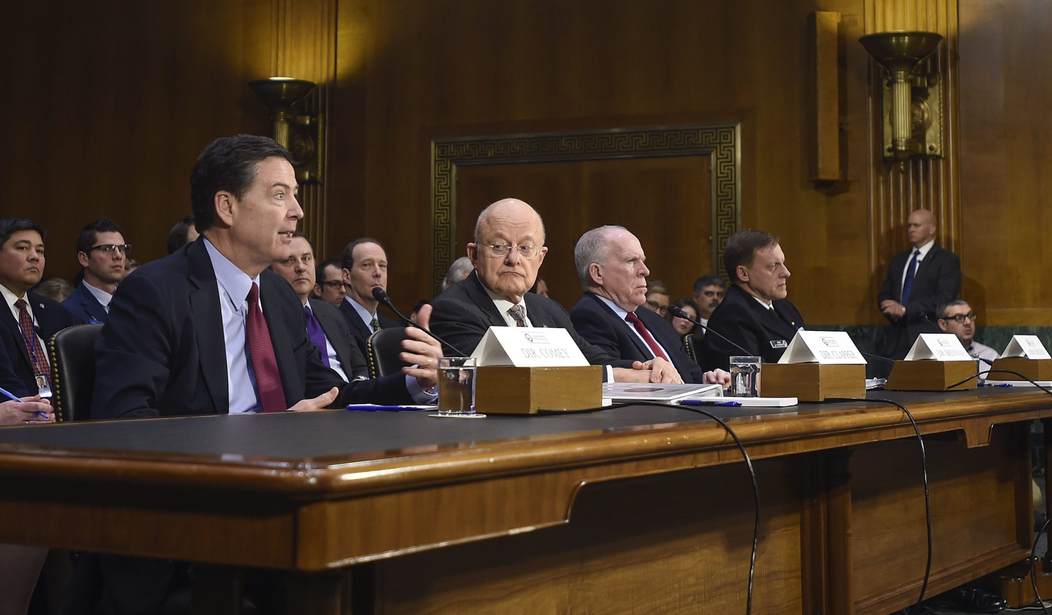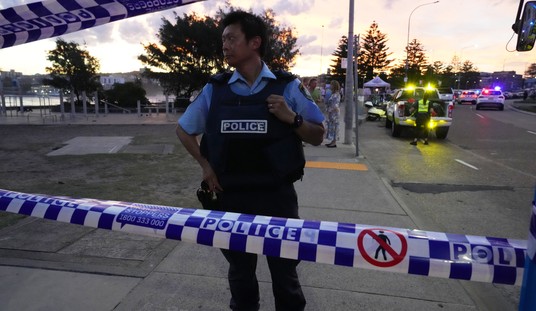WASHINGTON — In his first appearance before Congress since the presidential election, FBI Director James Comey told the Senate Intelligence Committee in open session that he could neither confirm nor deny if his agency was looking into any connections between the Russians and the Trump campaign in the scope of their investigation into election hacking.
Russian Deputy Foreign Minister Sergei A. Ryabkov said through the state-run Interfax news agency just after the U.S. election that they had contacts with the Trump team during the campaign stage and “a number of them maintained contacts with Russian officials.”
Sen. Ron Wyden (D-Ore.) asked Comey if those contacts were being explored.
“I think the American people have a right to know this,” Wyden said. “And if there is a delay in declassifying this information and releasing it to the American people, and it doesn’t happen before Jan. 20, I’m not sure it’s going to happen.”
Comey stressed he “would never comment on investigations, whether we have one or not, in an open forum like this.”
“So I really can’t answer it one way or another,” he said.
That prompted Sen. Angus King (I-Maine) to throw a dig at Comey’s pre-election comments on the FBI’s renewed investigation into Hillary Clinton’s emails: “The irony of your making that statement here, I cannot avoid,” the senator said.
Comey told the panel he’s hopefully “demonstrated by now I’m tone deaf when it comes to politics, and that’s the way it should be.”
In regard to reports that the FBI had not received access to devices of the Democratic National Committee and hacked officials during their investigation, Comey confirmed that “multiple requests at different levels” were submitted to the party to no avail. The FBI and Dems eventually agreed to rely on a report from a “highly respected private company” that did receive access to the devices.
Hackers were determined to have conducted “successful penetrations” of some groups and campaigns, particularly at the state level, as well as “limited penetration” of old Republican National Committee domains no longer in use.
Comey said intrusions at the state level included Russians accessing and taking information from voter databases. “What the purpose was of those intrusions is not clear at this point,” the FBI director said.
Asked if any Republican presidential campaigns were targeted by hackers during campaign season, Comey replied, “Not to my knowledge.”
Reviewing the findings of the intelligence community report that ascribed blame for a campaign that included cyber intrusions, state media, paid social media operators and more, Director of National Intelligence James Clapper stressed that the “high confidence” in the intelligence assessment comes from “multiple, high-quality sources” gathered and assessed by “seasoned, nonpartisan intelligence professionals.”
“Every cyber operation, malicious or not, leaves a trail,” he said.
Clapper said the Russians “will have no compunction about using the full array of tools available” to try to sway upcoming elections in France and Germany, including “paying people to use social media.”
What’s different between this and previous influence campaigns, he said, is the “unique and disturbing aggressiveness” of the operation “and variety of tools they used in their activism.”
“We did not assess the impact on the electorate,” Clapper again emphasized, noting “we just can’t say” how the release of any leaked information impacted the results of the election.
Clapper told senators that he could tell them in closed session roughly at what date Russia felt that Clinton was in electoral danger and “shifted gears” to trying to help Trump, who was considered “a fringe candidate” by the Kremlin for the first part of the election cycle.
Committee Chairman Richard Burr (R-N.C.) said Senate staff would be assessing the sourcing of the intelligence report, though he said there’s “no reason to doubt the findings.”
“We will follow the intelligence wherever it leads and we will conduct this review in a bipartisan manner,” Burr vowed.
Vice-Chairman Mark Warner (D-Va.) called the hacking “one of the most serious events of my public life” and suggested Russians could be holding on to information about Republicans to release at a time of their choosing. “Members of this body could easily be the next target,” he said. “… I still have questions why the Obama administration didn’t act further and didn’t act sooner.”
CIA Director John Brennan told the committee that last summer he confronted Russia’s FSB director, Alexander Bortnikov, about their suspected activities, warning them “they were playing with fire.”
“He said he would relay that to Mr. Putin at the time,” Brennan said. “I made it very clear that we’re onto him.”









Join the conversation as a VIP Member